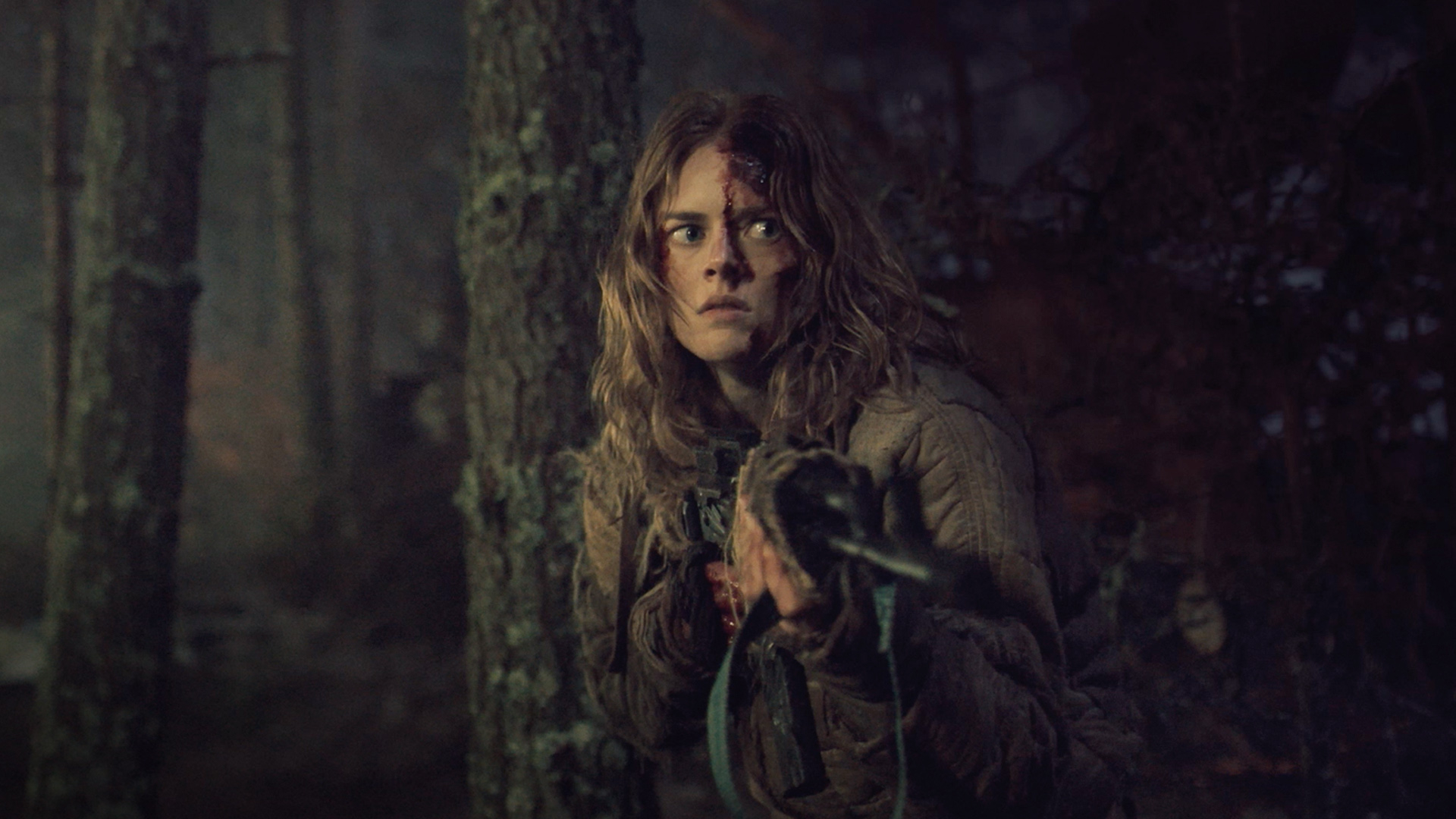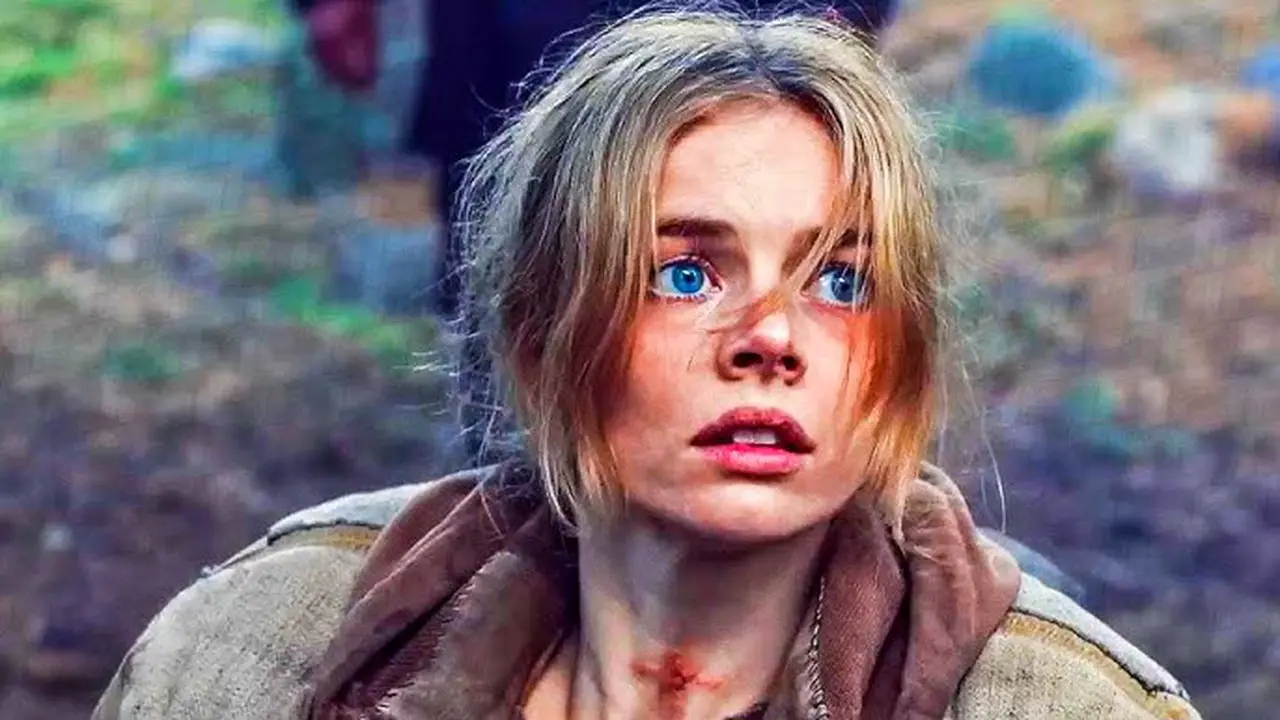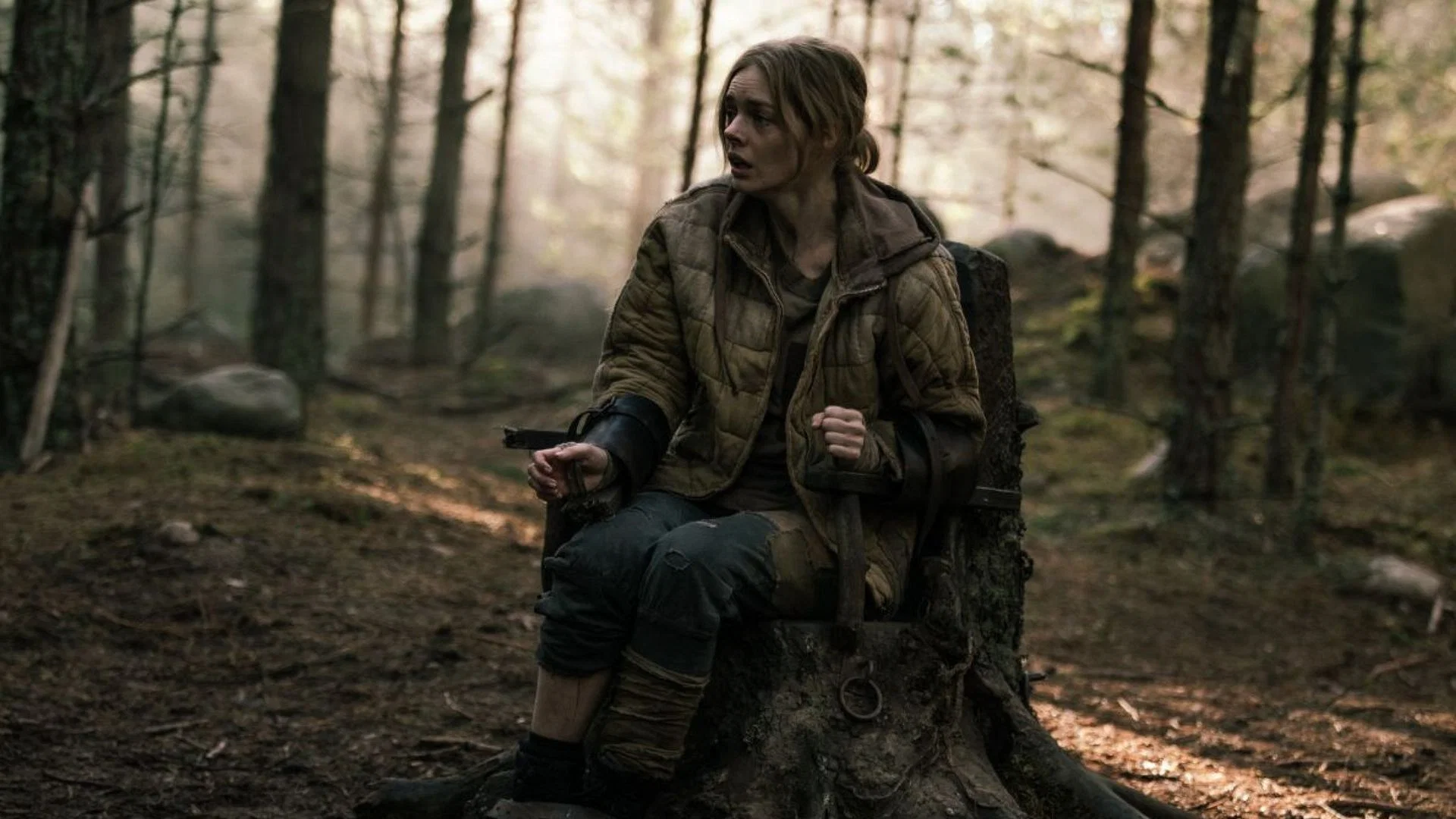E.L. Katz’s latest action horror film, Azrael, takes a bold and unique approach by telling its post-apocalyptic story with almost no spoken dialogue. The film stars horror icon Samara Weaving in the titular role, navigating a brutal world where survivors live in fear of demonic creatures known as the Burned Ones.
The movie unfolds in a grim, desolate landscape set years after the biblical Rapture, where a fanatical cult has enforced silence upon its members, believing speech to be the reason they were left behind. The film’s narrative is filled with mystery, religious symbolism, and shocking twists, making it a haunting exploration of faith, vengeance, and survival.
The world of Azrael is bleak and terrifying, shaped by the aftermath of the Rapture, which left behind those deemed unworthy of ascension. The remaining humans struggle to survive against the Burned Ones, monstrous humanoids that relentlessly hunt them. A cult has risen among the survivors, embracing a distorted version of Christianity where speech is a sin.
The cult members believe their failure to ascend was due to their voices, leading them to surgically remove their vocal cords. This self-imposed silence defines their existence, creating a nightmarish world ruled by fear and strict religious dogma.
The film opens with Azrael and her lover Kenan fleeing through the woods, pursued by the cult. They bear scars on their necks, indicating that they once belonged to this oppressive society but managed to escape.
However, their freedom is short-lived as they are captured, and Azrael is tied up as a sacrifice to the Burned Ones. Just as one of the creatures is about to devour her, she manages to escape, leaving behind a wounded cult member who is soon torn apart. The film quickly establishes Azrael as a fierce survivor, willing to do whatever it takes to stay alive.

The Cult’s Worship and Sacrificial Practices
The cult follows Miriam, a pregnant woman who serves as their leader and interpreter of divine will. They believe the wind carries the voice of God and that their strict silence is an act of piety. Azrael soon discovers Kenan nailed to a tree, a grotesque sacrifice to the Burned Ones. She attempts to save him but fails, and he dies along with their captors.
Enraged and grieving, Azrael embarks on a path of vengeance, returning to the cult’s settlement to burn it down and systematically kill its members. Her actions signify a complete rejection of the cult’s teachings and a willingness to embrace violence to dismantle their power.
The Burned Ones are the film’s most terrifying elements, appearing as grotesquely charred humanoids with an insatiable hunger for human flesh. Though their origins remain ambiguous, visual clues suggest they were created as part of divine punishment following the Rapture.
Their joy upon seeing Miriam’s monstrous child hints at their connection to Satan, reinforcing the idea that they serve a demonic purpose. Despite their ferocity, they show deference to Azrael in key moments, raising questions about her true nature and her connection to the apocalypse.
Azrael’s vengeance leads her back to the cult’s church, where she confronts Miriam and her right-hand follower, Josefine. In a climactic battle, Azrael kills Josefine and mortally wounds Miriam. As Miriam gives birth, she is horrified to see that her child is a goat-like monster with multiple eyes, heavily implying that it is the Antichrist.
Overcome with despair, she slits her own throat as the Burned Ones gather, responding to the newborn’s cries. The revelation that the cult, despite their supposed devotion to God, has produced a demonic entity undercuts their entire belief system, exposing the futility and darkness of their faith.

Azrael’s Smile: The Meaning Behind the Ending
In the film’s final scene, Azrael cradles the monstrous child and smiles as the Burned Ones howl in triumph. This moment suggests that this was her desired outcome all along. Her name, Azrael, carries significant religious connotations, often associated with the Angel of Death in Abrahamic traditions.
The Apocalypse of Peter, an ancient Christian text, describes Azrael as the Angel of Wrath who punishes the wicked. This interpretation aligns with her actions throughout the film—her methodical killing spree against the cult may have been a divine mission rather than mere revenge.
While one reading of the film suggests that Azrael is an agent of divine punishment, another perspective sees her as a survivor who simply wants control over her own fate. By accepting the Antichrist, she may have ensured her own survival, as the Burned Ones now see her as an ally rather than prey.
Another possibility is that her actions were driven by a desire to expose the cult’s hypocrisy. By destroying them and revealing their leader’s connection to evil, she proves that their self-imposed silence and suffering were meaningless.
Azrael is rich with religious symbolism, using Christian mythology to craft a compelling horror narrative. The cult represents the dangers of fanaticism—people who rigidly follow doctrine without questioning its morality. Their silence, which they believed would bring them closer to God, instead leads to their downfall.
The film also explores themes of vengeance and transformation. Azrael’s journey mirrors that of an avenging angel, but in seeking justice, she becomes something equally terrifying. The film leaves viewers pondering the thin line between righteousness and wrath.
Azrael delivers a haunting and thought-provoking horror experience, using minimal dialogue to craft a rich, immersive world. Its depiction of religious extremism, apocalyptic horror, and moral ambiguity sets it apart from conventional horror films.
The film’s ending remains open to interpretation, allowing viewers to decide whether Azrael is a hero, a villain, or something beyond human comprehension. With its blend of action, suspense, and deep thematic resonance, Azrael cements itself as a standout entry in modern horror cinema.



